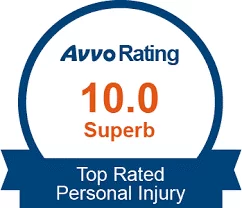When you’re hurt—especially when it happens at work—it can be difficult to decide what to do next. Most people know they are entitled to some sort of compensation to help pay bills and cover lost wages, but they aren’t exactly sure how to go about getting that compensation.
The two options available to you when you suffer an injury are to file a workers’ compensation claim or a personal injury claim. In some situations, you are entitled to one or the other and under some circumstances, you may be able to file for both.
So how do you know exactly which options are open to you when you suffer an injury? Let’s take a look at the possibilities and see how each case works.
Workers’ Compensation Claims
Workers’ compensation is a no-fault system designed to protect anyone working as an employee. If you are hurt at work, you are entitled to workers’ compensation to help cover the costs of things like lost wages, doctor bills, rehabilitation, prescription costs, etc. You do not need to prove that an injury was anyone’s fault, only that it happened while you were working. You are entitled to the benefits even if the injury or accident is your own fault.
In exchange for workers’ compensation benefits, workers cannot sue their employer or fellow employees for extra damages, such as pain and suffering. In general, workers’ compensation claims will only pay for financial losses that are a direct result of your injury at work.
It’s important to note, too, that a work injury can occur anywhere when you are working. It doesn’t necessarily have to happen in a building where you are employed. If, for example, you were in a car accident while driving to pick up office supplies during your work hours, you would be entitled to workers’ compensation benefits since the accident occurred while you were working.
Personal Injury Claims
The two major differences when it comes to a personal injury claim are that you can file a claim based on an injury that occurred at any time—not just at work—and you must prove that the injury was the result of someone else’s negligence. You can also seek extra compensation for pain and suffering that you’ve endured because of your injury.
The most important requirement for a successful personal injury claim is that your injury must be the fault of someone else. We’ve all heard wild stories about the friend of a friend who slipped and fell in the supermarket, sued the store, and walked out of court with a multi-million dollar settlement. Unfortunately, it doesn’t quite work that way.
When filing a personal injury claim, you will only receive compensation if you can prove that someone else did something wrong and that you wouldn’t have suffered your injury otherwise. If, for example, you filed a suit because you slipped and fell in the supermarket, you would need to prove that the supermarket was somehow negligent in their maintenance of the store. Tripping over your own untied shoelace isn’t the fault of the store. Tripping over a loose floor tile that wasn’t properly repaired, however, could very well be.
When Workers’ Compensation and Personal Injury Overlap
In most cases, the choice to file a workers’ compensation claim or a personal injury claim will be fairly clear. In some situations, though, the two can overlap and you might be able to file both types of claims.
In the special case of an injury that occurs while you are working, but also as the result of negligence by a third party, you may be able to make a workers’ compensation claim and file a personal injury claim against that third party, too.
Let’s mix together the two examples that we used above. Let’s say that during your regular working hours you drove to the store to pick up some office supplies. While you were walking around the store trying to find some special pens for your boss you tripped over a loose floor tile, fell, and broke your wrist.
In this case, you would clearly be entitled to workers’ compensation benefits because the injury occurred while you were working. However, since the store—a third party—may have been negligent in their duty to repair their floor, you may also be entitled to file a personal injury claim against the store.
Contact a Trusted Attorney Today
If you’ve been injured at work, at a place of business, or anywhere else, an experienced personal injury attorney can help you decide your next steps. Contact Greathouse Trial Law to speak to a personal injury attorney and discuss the details of your case. We’ll be happy to analyze your situation, explain your options, and find the solution that is right for you.


